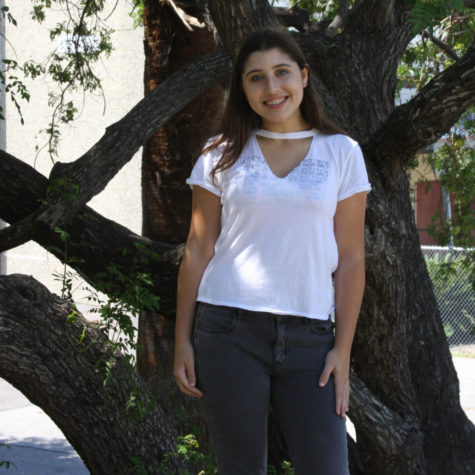Logic is Here for ‘Everybody’
In late August, the MTV Video Music Awards featured a wide variety of performances. However, one that stood out among the others was a performance by Logic, an American rapper, of his hit single “1-800-273-8255,” alongside fellow artists Khalid and Alessia Cara. The song is named after the National Suicide Prevention Lifeline hotline number and is notable for its message about suicide. Sharing the stage with the performers was a group of suicide survivors who wore t-shirts displaying the hotline number on the front and a message reading “You are not alone” on the back of the t-shirt. Not only was Logic’s performance ground-breaking, but it was also significant to him personally. Logic has faced the very suicidal thought which the song describes, which is why it was so important for him to use his platform to raise awareness for mental health.
Growing up, Logic endured a rough childhood due to several hardships that he had to overcome, including drug abuse, alcoholism, and the absence of his father. At 17, he lived alone and simultaneously worked two jobs. These obstacles in his early life have had their share of influence on what he raps about in his music and the issues he uses his platform to speak out about.
In his album “Everybody,” Logic tackles many crucial topics such as mental health, anxiety, suicide, depression, racism, discrimination, sexism, domestic violence, and sexual assault. His song “1-800-273-8255” has been dubbed by Billboard Magazine as an “anthem for suicide prevention.” In this moving song, he takes the listener through the complex feelings of a suicidal individual calling the National Suicide Prevention Lifeline. In the first chorus of the song, the lyrics say, “I don’t wanna be alive,” which by the second chorus then say, “I want you to be alive,” and by the end, they say, “I finally want to be alive.” As the song progresses, the individual making the call receives the support they need. Through this song, Logic puts into words an experience that is often challenging to depict and communicate to others. He reassures his audience that there will always be someone there for them. In addition to affecting a global audience, this performance also influenced some CHS students. Logic’s emotional performance of “1-800-273-8255” hit hard for sophomore Analiese Knight-Ward.
“It is essential for artists to follow Logic’s example and to use their platform to speak out, relay information, and provide support for those who need it. He successfully spread awareness about important issues. It was so moving,” Knight-Ward said.
In addition to affecting students here at CHS, Logic’s performance made a major impact on teens nationwide. Following Logic’s performance, the National Suicide Prevention Lifeline reported that it experienced a 50% increase in the amount of calls they received. This song is so important because it could potentially sway many people from making a permanent decision and influence them to call the lifeline or seek out help from a friend or family member instead.
As suicide rates are rising rapidly, Logic’s “1-800-273-5255” comes at a pivotal time. Hopefully, other artists will follow Logic’s example and use their platform to express awareness for important issues through their music.
Hello there! Our goal is to provide relavent, engaging journalism for readers of all ages. Your donation will support the student journalists of the Wolfpacket at Claremont High School, and will allow us to purchase equipment, print our monthly issues, and enter in journalism competitions. We appreciate your consideration!

Kendall Chraplewski is currently a junior at Claremont High School, and it is her first year on the Wolfpacket. She is excited to serve as a reporter this...






